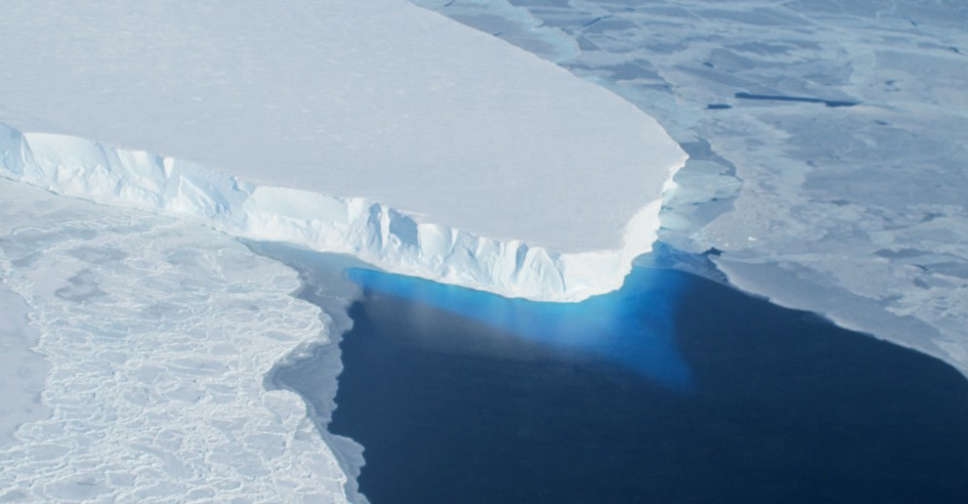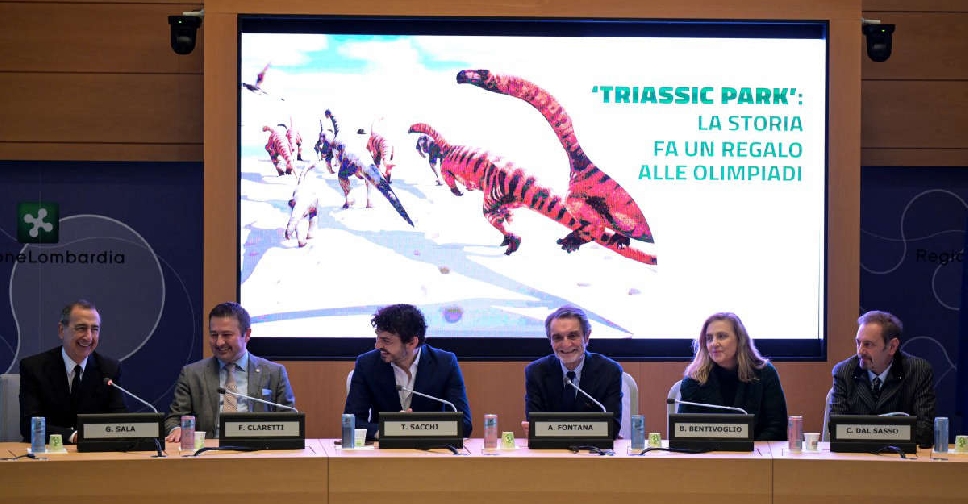
Scientists have discovered that a major glacier in northwest Greenland is interacting with the ocean tides, resulting in previously unaccounted-for melting and potentially faster sea level rise, according to a study.
Published in the Proceedings of the National Academy of Sciences, the study's lead author, Enrico Ciracì, a scientist at University of California, said the Petermann Glacier's grounding line, which is the area where the ice sheet begins to extend out on top of the ocean, can shift significantly as tides come in and out each day.
It showed that Petermann’s grounding line “migrates between 2 and 6 km as tides come in and out", adding that this is an important finding.
The traditional view among scientists was that the grounding line did not migrate with the tides, and this introduces another major source of melting that could be accelerating sea level rise.
Between 2016 and 2022, warmer tidal cycles melted a 670-foot-tall hole in the underside of the glacier along the grounding line, which is big enough that two Statues of Liberty could be stacked on top of one another inside it.
The phenomenon could worsen in the coming years and decades as ocean temperatures climb. Sea surface temperatures were at their highest on record this spring - a spike that has alarmed scientists who are concerned it could be part of a worrying new trend.
The study raises more concerns for the already worrisome prospect of sea level rise, which threatens coastlines around the world. Greenland’s melting ice is the single largest contributor to sea level rise, according to NASA, and has been accelerating in recent years. However, current projections do not account for this newfound contribution from under-ice interactions with warming tides.
"These ice-ocean interactions make the glaciers more sensitive to ocean warming," said co-author Eric Rignot, a professor at UCI and NASA JPL research scientist, in a statement. "These dynamics are not included in models, and if we were to include them, it would increase projections of sea level rise by up to 200 per cent - not just for Petermann but for all glaciers ending in the ocean, which is most of northern Greenland and all of Antarctica."





 Thousands of dinosaur footprints found near Winter Olympics site
Thousands of dinosaur footprints found near Winter Olympics site
 Japan's last two giant pandas are headed to China and fans just can't bear it
Japan's last two giant pandas are headed to China and fans just can't bear it
 Huge undersea wall dating from 5000 BC found in France
Huge undersea wall dating from 5000 BC found in France
 Koshary, a spicy Egyptian staple, wins UNESCO recognition
Koshary, a spicy Egyptian staple, wins UNESCO recognition
 Boosted by Dubai chocolate craze, Argentina bets on pistachios
Boosted by Dubai chocolate craze, Argentina bets on pistachios


